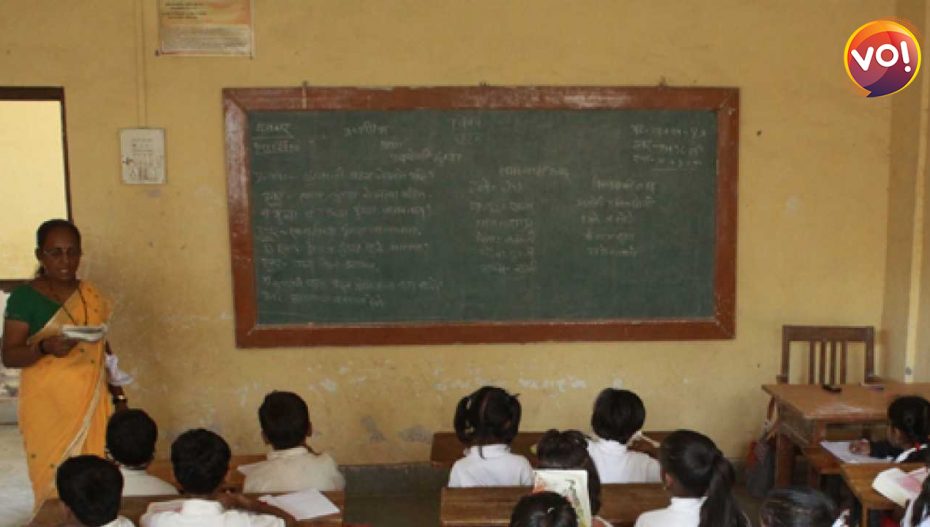As Gujarat is becoming one of the better-performing schools across India with the introduction of smart classrooms under ‘Gyankunj project’, many school students have stopped attending private schools and have started joining government-aided schools.
Sanjay and Ankita Prajapati are one such parents, working in private companies in Maninagar, have recently cancelled the admission of their two kids at Pooja Vidyalaya and have got them enrolled in a government-backed school- ‘Indrapuri Government Primary School’.
“Our son Prince studies in class 6 while Jasmine is in class 4. Despite us paying a good amount of fees, the quality of education in private school was not satisfactory. Dejected, we enrolled them in a government school where teaching is surprisingly good,” Sanjay Prajapti said.
Stating over the performance of their children, he added, “Performance of both has improved as they are administered weekly tests. In fact, both sit to study at home regularly,” father of Jasmine and Prince added.
Sanjay, who merely earns an amount of INR 15,000 per month, said- “The free education has helped him save money for the family’s other expenses.
Currently, the western state of Gujarat is observing a trend of reverse migration of students from private institutions to government-backed schools.
According to the data released by the State Education Department- ‘In a span of four years, nearly 11.3 lakh primary and secondary class students ranging from standard 1-8 have left private schools and taken admissions in state-aided schools’.
While the pandemic years- ‘2020-21’ & ‘2021-2022’ witnessed the highest ever migration of students of nearly 2.85 lakh and 3.49 lakh respectively to the government-run schools in Gujarat, the trend has still continued.
In this academic year, 2022-23, approximately 2.24 lakh students have reportedly shifted from private schools to public schools.
Although, there is no clear reason that could explain the unprecedented movement, different schools of thought have appeared citing varying reasons.
Secretary (Primary & Secondary Education), State of Gujarat, Dr Vinod Rao said, “Earlier, government schools would lose students regularly to private schools, which has reversed the flow now. Parents admitting their children in government schools from private set-ups, is a heartening sign of improved quality of education in government schools.”
He gave the whole credit to the changes that have been incorporated into the education system namely 60,000 smart classrooms, online attendance of both the students and the teachers, centralised assessment of students on weekly basis and student-wise, subject-wise report cards of each ward using the ‘Vidya Samiksha Kendra (VSK)’, which helps system identify gaps in learning and resultant interventions behind improved quality, which is attracting students into government schools.
The Vidya Samiksha Kendra (VSK), the command control centre was set up by the Gujarat education department in Gandhinagar.
With the use of artificial intelligence, machine learning and large data analysis, the VSK has become a powerhouse for more than 54,000 schools, teachers and students. It analyses over five crore data sets in a year and could bring a big change in the field of education across the state and the country.
Bharat Gajipara, president of the Self-finance School Management Association (SSMA) said, “The COVID-pandemic has adversely impacted small schools which had limited classrooms. With a dwindling number of students, such schools found it tough to sustain and could not even carry out online classes due to lack of infrastructure.”
“Students of such schools had no other option, but to go for other schools including government-run schools,” Gajipara added.
Digvijay Singh Jadeja, president of Gujarat State Primary Teachers’ Association, said, “The pandemic period had caused many families to redraw financial planning, and they sent the kids to government schools. Quality of teachers was another aspect- many private schools still lack qualified teachers with B.Ed. or PTC degrees. That’s another reason.”
Meanwhile, Bhaskar Patel, president of the Gujarat State School Management Association has agreed that the improvement in the quality-based education and the fee structure has brought a major shift in the state in a couple of years.
However, the educationists are a bit sceptical about the number.
“There is no doubt that several students got shifted to government schools from private ones. Even as we have not witnessed such a large volume of shift, it is more likely an urban migration as there is not much choice in rural areas,” Parul Sheth, director of Shaishav said.
Under the Gyankunj Project, over 15,000 smart classrooms have been built across Gujarat, according to MIS data. In 2022-23, as many as 24,000 more such classrooms are expected to be made functional.
The daily online attendance of all schools in the state is 11.5 million.
All public elementary schools and field officers have also been provided with tablets. Over 350 schools have been equipped with CCTV cameras, MIS data further showed.
The state has also launched the first edtech company, Gujarat Education Technologies (GET). A learning management system and the G-Shala content app were launched under the scheme. Currently, over 3 million students are using G-Shala.Gujarat has also become the first state to launch a school accreditation and ranking framework, GUNOTSAV 2.0 and has emerged as one of the better-performing states in India, especially the government schools and grant-in-aid schools.
Also Read: Union Home And Co-operation Minister Amit Shah In Gujarat












